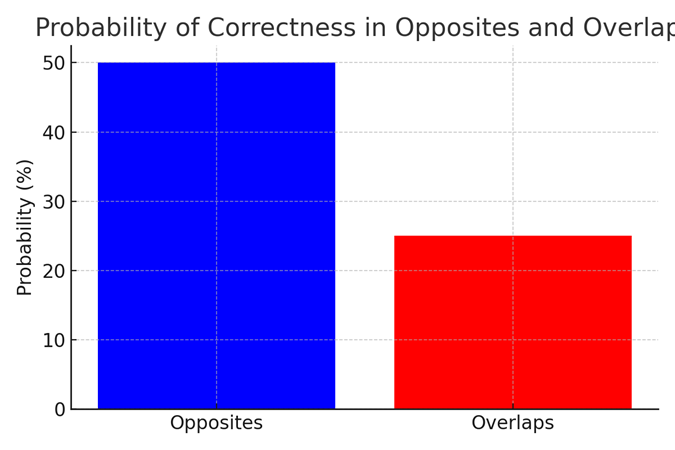Ever since I was a child, every time I faced an MCQ exam, I noticed something curious. No matter the subject or the complexity of the material, I would often come out with scores that were above par, sometimes significantly above the average. This trend continued right up through my toughest exams, including the CA Final and even CFA Level 1. But here's the thing: my knowledge of the content wasn't really different from that of my peers. We'd all studied hard, all put in the hours, and all prepared as best as we could.
This consistency in my results got me thinking—what was it that I was doing differently? Why was I scoring higher even when the playing field seemed equal in terms of knowledge? I started to realize that perhaps it wasn't just what I knew, but how I was approaching these questions. I noticed patterns, subtle hints in the way questions and answers were presented. Over time, I began to refine a set of strategies, almost without realizing it, that helped me make smarter choices even on questions I wasn't entirely sure about.
It wasn't a magic formula or a shortcut that required less effort—in fact, it took consistent practice and awareness during each test. But looking back, I think these small adjustments and insights made a big difference in how I navigated the questions and, ultimately, in the results I achieved.
Reflecting on all those exams, I now feel that these strategies are something worth sharing. They helped me, and perhaps they could help others too—students, professionals, anyone facing an MCQ exam. Because sometimes, it's the approach, the small tweaks in our thinking, that can take us from just knowing to truly excelling.
Imagine this:
You've studied hard for an exam, armed yourself with knowledge, and still, you come across a few questions you're unsure about. That's where the science of smart guessing comes in. First things first: guessing should never be your primary strategy. Your knowledge and understanding should guide you first and foremost. But in the rare case that you need to make an educated guess, here's how to turn probability and patterns into your advantage, using some simple math principles and strategies.
Let's break down each of these smart guessing techniques:
1. Avoiding Extremes: Probability of Absolute Words Being Incorrect
In many cases, answers that include absolute terms like "always," "never," or "every" have a low probability of being correct.
2. Elimination: Reducing Options to Improve Probabilities
When you can eliminate two incorrect answers out of four, you reduce the sample space from four options to two, effectively boosting your probability of a correct guess from 25% to 50%.
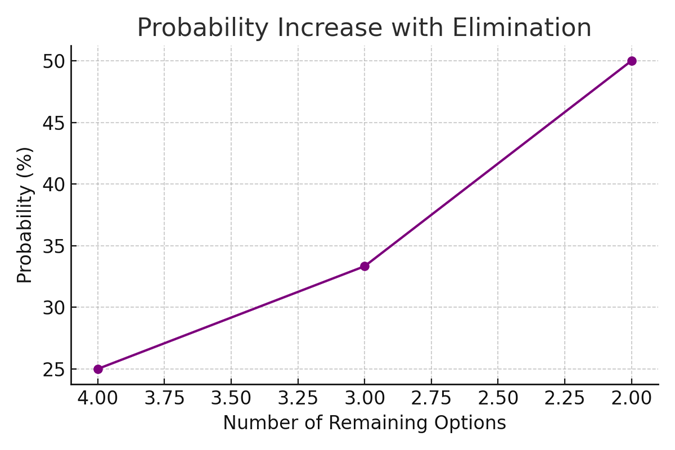
3. Closest Answer Estimation: Using Approximation
If you've calculated an answer approximately, say around a specific value like 100, but don't know the exact result, you can estimate by looking for the closest match. For example, if the answer choices are 78, 45, 63, and 108:
- Define your estimate: ≈100
- Select the option closest to 100 (in this case, 108)
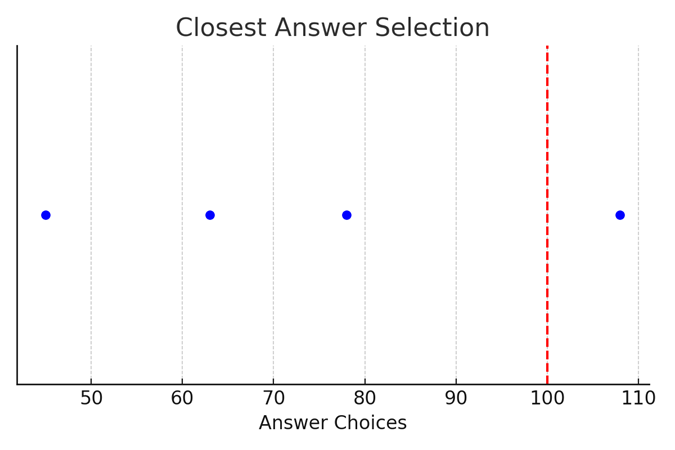
4. Long Questions: Focus on the Stem
Long questions can contain distracting details, so it's efficient to look directly at the "question stem" (the last sentence) where the actual question is often found.
Think of it as isolating relevant data from noise. If you're trying to solve an equation, you wouldn't waste time on irrelevant variables; similarly, here, focus on the core question to minimize distractions.
5. Don't Over Analyze
Avoid overthinking or assuming that the question is designed to trick you. The purpose of an MCQ is to assess your knowledge, calculations, and understanding of a concept—not to mislead you with clever word play. Focus on the content rather than searching for hidden traps.
6. Frequency of Occurrence
If a term or concept appears across multiple answer choices, it’s more likely part of the correct answer. For example, if the choices are:
- A: X and Y
- B: X and Z
- C: Y and Z
- D: X and W
Since “X” appears most frequently, there’s a higher probability that “X” is in the correct answer.
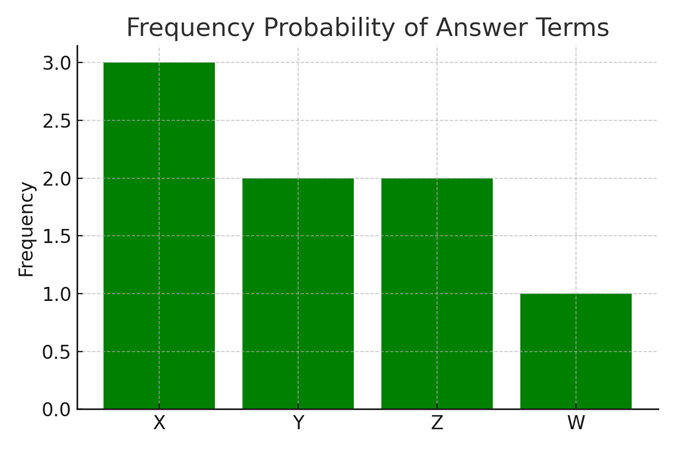
7. Similar Answers
When two answers are almost identical except for one minor detail, the correct answer is likely one of these two. This situation effectively increases your probability to 50% between the two similar choices.
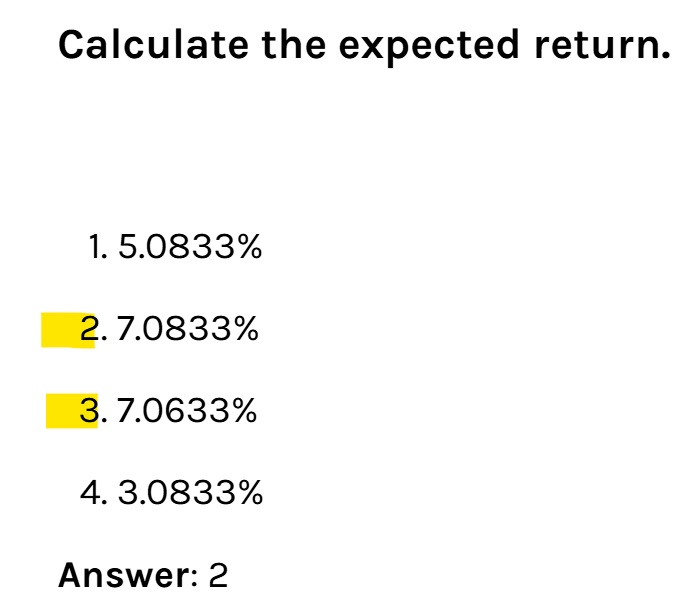
8. Longest Answer Strategy
Humans are lazy. The MCQ maker usually don't write longer texts for wrong answers.
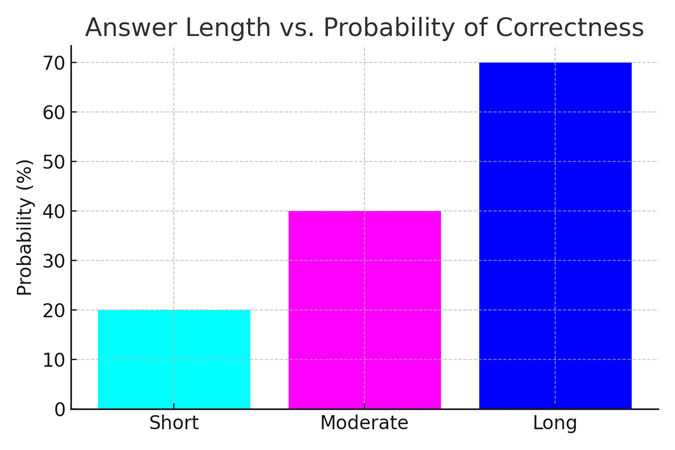
9. Direction of the Question
Pay attention to phrases like "most likely" or "least likely". Questions with these phrases require a specific response type. Recognizing these terms can help narrow the answer choices:
- Define the direction (positive or negative)
- Choose the option that aligns best with the directional cue
10. Additional Strategies
- Grammatically correct options are more likely to be correct
- Options which are very close (e.g.Choice are - 101.3, 101.7, 104.2, 98.4) often indicate that the correct answer is one of the closest values, such as 101.3 or 101.7 in this case.
- If you know 2 answers that are correct, quickly select the option like "all of the above"
- Opposite concepts suggest a higher chance that one of them may be correct.
